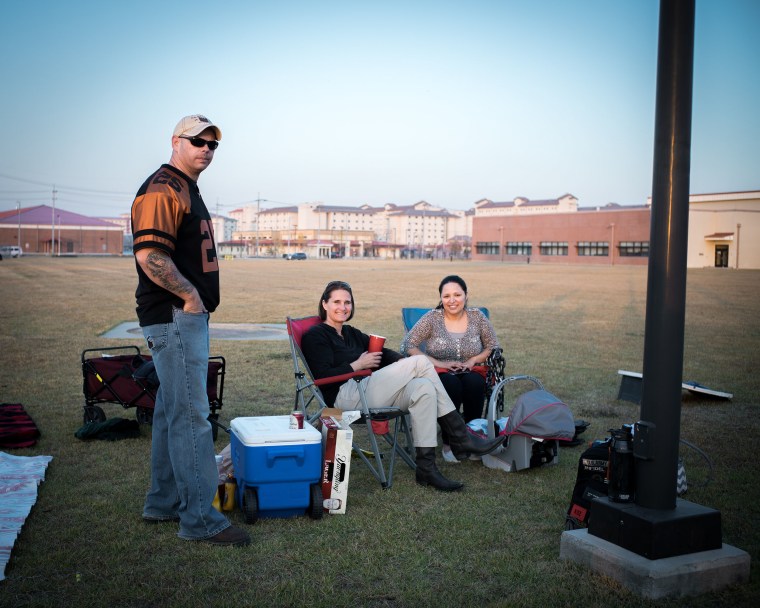WASHINGTON — Soon U.S. service members deploying to South Korea may not be allowed to bring their families with them.
Top Pentagon officials are considering changing the policy that allows service men and women to deploy on accompanied tours to the Korean Peninsula, according to three U.S. defense officials. An accompanied tour is when a service member's family can accompany them, traveling at the military's expense.
In a statement, the Pentagon said that no change in policy is imminent. "The U.S. Department of Defense currently has no plans in place to modify the policy authorizing U.S. military dependents to to accompany service members on orders to, or currently stationed in, the Republic of Korea," said a Pentagon spokesman, Col. Rob Manning.
The idea of making all tours in Korea unaccompanied is not new, but gained new traction when President Donald Trump saw retired Gen. Jack Keane comment about the issue on FOX News, arguing the Pentagon should stop sending families there to allow the troops to prepare for possible war with North Korea, according to two U.S. officials.
"I don't believe it's happening, but it's been discussed," a senior administration official told NBC News.
The official said Trump brought it up six months ago during a meeting with top national security advisers.
Trump did not raise the issue during a phone call Friday with South Korean President Moon Jae-in, a senior administration official said. The official said the president’s advisers have made the case to him that such a move would be seen as an escalation toward a military confrontation with North Korea. The official described it as something the White House has in its "back pocket."
The White House readout of Trump’s phone call with Moon said the two leaders discussed the upcoming Olympics, trade and "the importance of improving the human rights situation in North Korea." Trump also met Friday with North Korean defectors at the White House. "These are just great people that have suffered incredibly. There are many others like them who have suffered," Trump said.
There are currently approximately 28,500 U.S service members in South Korea and about 7,700 dependents with them. The U.S. has 15 military bases in South Korea and some are less than 30 miles from the North Korean border. A new mega-base called Camp Humphreys south of Seoul includes a huge shopping center and a golf course and is designed to house 45,000 service members and dependents.

If accompanied tours were ended, the defense officials said the most likely scenario would be to change the policy for future deployments and would not involve sending dependents currently in South Korea back to the U.S.
Service men and women on accompanied tours to Korea typically deploy for two years, while unaccompanied tours are generally one year to minimize time away from families.
In December, days after North Korea tested an intercontinental ballistic missile, Sen. Lindsey Graham, R-S.C., told CBS News it was time to end accompanied tours. "I'm going to urge the Pentagon not to send any more dependents to South Korea," he said, adding, "It's crazy to send spouses and children to South Korea, given the provocation of North Korea."
Any change in Pentagon policy would not apply to the approximately 190,000 other American citizens who live in South Korea.
The State Department has no plans to modify its current policy that permits dependents to accompany State personnel on postings to South Korea, according to a spokesperson.